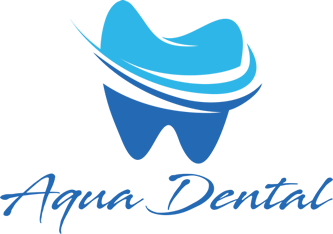Do you or your child have the habit of biting the insides of your cheek? Call our dental office today at (918) 455-7700 if this has caused any trauma to the inside cheek. Drs. Jim and Sam Owens can recommend a treatment to help kick the habit.
Body-focused repetitive behaviors, such as cheek biting, most often begin in late childhood and can last throughout adulthood. Cheek biting is a fairly common habit and is actually very similar to nail biting. Typically brought on by stress or when nervous, biting the inside of the cheek can be painful, and in certain cases, concerning for the dental team at our Broken Arrow dental office. Let’s talk about why this behavior occurs and tips on how to overcome the behavior.
IDENTIFY THE CAUSE
Before we discuss why biting any of the tissues in your mouth is bad for you, we should identify why it happens in the first place. If you catch your cheek in between your teeth while chewing and talking only on occasion, there’s probably nothing to be too concerned about. However, if this happens to you chronically, or if you nibble on your cheek constantly throughout the day, there may be a reason for concern.
WHY IS IT BAD?
First, any continued trauma to oral tissues can result in painful mouth sores which can become infected. Infection in the mouth is never a good thing and can actually be quite serious. Second, if you bite yourself quite often while eating, you may suffer from a misaligned bite (malocclusion). Malocclusion can lead to more serious problems like chronic headaches, a sore jaw, TMJ (temporomandibular disorder), and shifting of teeth. When your teeth don’t fit together neatly, there’s a greater chance of your cheek, lip, or tongue finding its way in between them causing you to crunch down on it.
WAYS TO STOP
No matter what the cause may be behind biting your cheeks, there are a few tips you can try to help stop it.
1. Figure out when you do it. If your lip or cheek biting is a result of stress or nerves as opposed to a bad bite, start paying attention to when you’re doing it and work to either avoid those triggers or work to consciously stop yourself.
2. Find a support system. Sometimes, you may not realize you’re biting so often. Talk with trusted friends or coworkers about trying to stop the habit and ask them to help you identify when you do it.
3. Do something! Another common reason behind biting is boredom. If you find yourself nibbling away while watching TV, get up, get active, and do something!
4. See your dentist. If you believe your bite may be contributing to your chronic biting, talk with your dentist in Broken Arrow for advice on how to help.
If you or your child suffers from chronically biting your cheeks, lip, or tongue, schedule an appointment at our dental office in Broken Arrow. We’ll check any active sores you have for infection and help treat them if necessary, and work with you to determine not only what’s causing you to bite so often, but also the best ways to help you stop. Constantly traumatizing the tissue can lead to oral cancer, but it is reversible with avoidance of cheek biting, according to the Oral Cancer Foundation.


Recent Comments